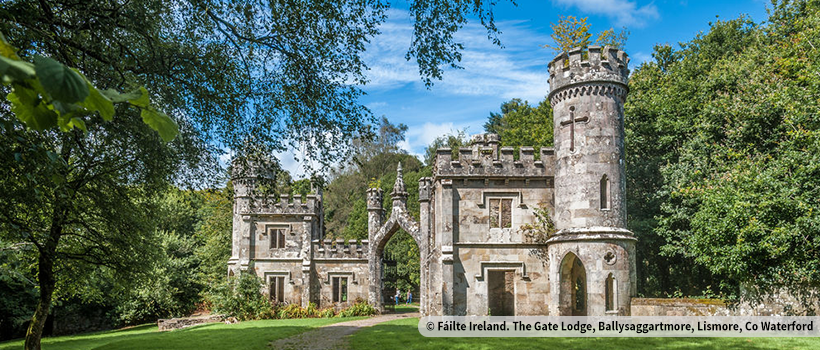Our History

From passage tombs older than the pyramids to cities founded by Vikings, crumbling castles to grand country estates, Ireland's history is etched on our landscape. In the 7,000 years that this country has been inhabited, we've been invaded and settled by the Celts, the Vikings, the Normans, the English and the Scots and they have all left their mark on our history, geography, culture, language and people.
Did you know? Saint Patrick is credited with bringing Christianity to Ireland in the fifth century.
A new state
When the Anglo-Irish Treaty was signed in 1921, Ireland entered a new chapter in its history. The Treaty saw an end to the War of Independence, and the establishment of an Irish state made up of 26 counties, with six Ulster counties administered by a devolved Government within the United Kingdom. The Constitution of Ireland of 1937, provides that Ireland (or Éire in Irish) is the official name of the State and following the enactment of the Republic of Ireland Act of 1948, in 1949, Ireland became a Republic.
Did you know? Ireland became a member of the United Nations in 1955 and joined what is now the European Union in 1973.
Northern Ireland
After the War of Independence in 1921, Northern Ireland had its own devolved government, controlled by the Unionist majority until 1972. However, discrimination against Nationalists in voting, housing and employment and the repression of Nationalist civil rights campaigners led to civil unrest and was followed by the period of sustained conflict known as the Troubles.
From the 1980s onwards, the Irish and British governments began to work closer together to achieve peace, culminating in the Good Friday Agreement in 1998. The Agreement set out a framework for both communities in Northern Ireland to resolve their differences and ended decades of violence.
Did you know? The Good Friday Agreement was overwhelmingly approved by the people of Ireland in referendums both North and South in 1998.


